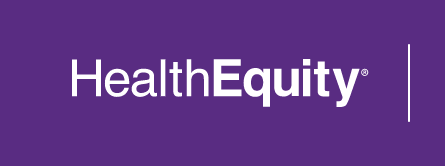As an employer, you look for the best possible healthcare benefits for your employees; benefits that also fit your budget. The tasks required to evaluate and select these options can take many valuable hours of your time. Understanding different health plan types can be a good place to start when evaluating pros and cons.
Healthcare benefits are typically the most popular (and most expensive) benefits costs that employers provide their employees. That said, there are ways that employers can save money and still offer employees the best possible options. Below is some information about common health plan options and benefits that can help you get started determining what is right for your business.
High-deductible plan
The lower premiums of a high-deductible plan make them an appealing option for employers who are looking to cut fixed costs associated with health insurance. On average, the difference in annual family premiums between a high-deductible health plan and a traditional (PPO) health plan is $1,900.
If qualified, these plans can also allow employees to fund a health savings account (HSA).
Health savings account
HSAs are available to employees who enroll in an HSA-qualified health plan. Contributions can be made on a pre-tax basis, there are no taxes when funds are used for qualified medical expenses and the funds grow tax free.
Employers can match your employee's HSA contribution as a way to incentivize them to make contributions. Also, HSA contributions which are deducted from payroll on a pre-tax basis, create FICA tax savings (7.65%).
A recent EBRI study showed that employees contribute $1,986 to their HSA on average. That contribution can potentially save an employer $151.93 in FICA taxes, $19.72 SUTA, $9.93 FUTA and $39.72 on worker compensation insurance, for a total of $221.30 per employee. The same EBRI study also showed that, on average, employers contribute $935 to their employee's HSA. Based on the 21% corporate tax rate, that is another $196.35 in savings annually per employer ($417.65 total).
Traditional plan
Although an increasing number of employers are choosing high-deductible plans, traditional plans still lead in enrollment numbers. The lower deductibles and co-pay arrangement of most of these plans is more familiar to many employees but the trade off is higher premiums. Employers can help provide some additional savings to employees by providing a flexible spending account (FSA).
Flexible spending account
A flexible spending account is a tax-advantaged health spending account provided by the employer for the benefit of the employee. They are similar to HSAs, with a few key differences. Primarily, employees must use their FSA contributions in the calendar year or they lose them. Employers can allow employees to carryover up to $500 or provide a grace period, but there are additional restrictions.
According to EBRI, the average employee contributes $1,306 to FSAs, and when they contribute employers get $99 in FICA savings.
Conclusion
Providing healthcare benefits can be a complicated and time-consuming endeavor, but employers who understand how to position and leverage these benefits can experience savings and offer competitive benefits to employees. As employer strategies mature, driving additional enrollment and participation in account-based options can have an incremental effect on tax savings opportunities.
HealthEquity does not provide legal, tax, financial or medical advice.
HSAs are never taxed at a federal income tax level when used appropriately for qualified medical expenses. Also, most states recognize HSA funds as tax-free with very few exceptions. Please consult a tax advisor regarding your state's specific rules.


